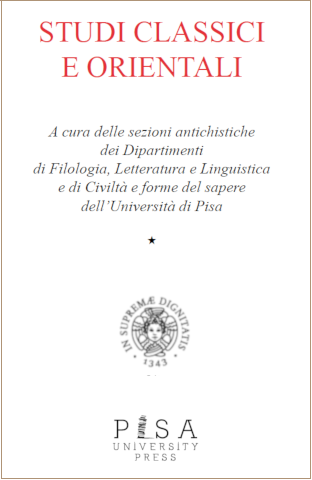Il Servio Tullio di Livio e le sue ‘contraddizioni’. A proposito dell’elezione ritardata in Liv. I, 46, 1 e di altri stratagemmi liviani
Abstract
Livy’s Servius Tullius and his ‘contradictions’. The delayed election in Liv. I, 46, 1 and other Livian stratagemsIf we compare Livy’s account of king Servius Tullius with the one reported by the other sources, some oddities stand out. According to Dionysius of Halicarnassus, Cicero and Zonaras/Cassius Dio, Servius seized the power thanks to a plebiscite and against the senate’s will; in Livy, Serviusbegins to reign voluntate patrum and the election by the people is delayed until the end of the reign. Moreover Lucius Tarquinius’ charge against Servius (non auctoribus patribus […] regnum occupasse) seems to clash with the voluntas patrum. In this essay, we shall try to find a proper explanation for these apparent ‘contradictions’. On the one hand, Livy places the ‘moderate element’ of the voluntas patrum at the beginning of his account; on the other hand, the distribution of the land, the plebiscite and the senatorial dissent are postponed and linked to the discredited character of Tarquinius the Proud. Therefore Livy does not remove the ‘irregularity’ that, according to the tradition, characterized the reign of Servius Tullius, but he finds an effective way to dissimulate it. Consequently, whereas the other main sources show a sort of evolution of Servius from demagogy to moderation, in the Ab urbe condita we can recognize a ‘total absolution’ of the king who laid the foundations of the Roman Republic. Taking the cue from a thorough inquiry into the meaning of the delayed election and from a new contextualisation of it (see D.H. IV, 37), the Livian ‘stratagems’ that make this absolution possible are here analysed.
stefano.poletti@sns.it
Fascicolo
Sezione
Articoli


